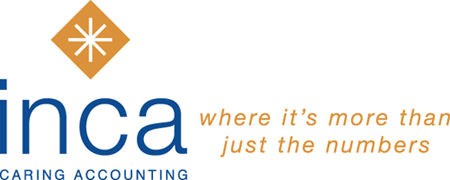5 Top home office FAQs answered!
Many successful businesses began life on a dining room table, in a spare bedroom or a garden shed. Even global giant Apple can trace its origins back to the garage at co-founder Steve Jobs’ childhood home.
When you’re starting out, you need to keep overheads to a minimum, and using part of your house as your office – rather than renting or buying a premises – makes good financial sense.
As a practise that specialises in working with small and micro service-oriented businesses, many of which are home-based, we’re extremely well-versed in all issues relating to home working here at Inca.

Because some of the questions we’re asked by business owners recur regularly, we thought we’d take time to provide answers to our top 5 FAQs on this topic:
1. Am I entitled to tax relief for working from home?
Yes, if you’re running your business from your home, you are entitle to claim tax relief on a proportion of your expenditure for outgoings like heating, electricity, water, home insurance and council tax. The amount you can claim will depend on how much time you spend working at home, and whether the space you use is a shared room or a ‘qualifying’ room.
- Shared rooms:
If your home office is in a shared room that’s used for other purposes – your kitchen or dining room for example, or a bedroom that’s regularly occupied, then you can claim a flat-rate weekly tax allowance.
- Qualifying rooms:
If the room you use is dedicated solely to the running of your business, HMRC classifies this as a ‘qualifying room’, and the amount of tax relief you’re entitle to will be based on the area you are using in relation to the rest of your home.
Say for example you have 4 rooms in your home and use one of them exclusively as an office, you can claim tax relief on 25% of your allowable expenses.
It’s important to be aware that a qualifying room cannot be a common area such as a hallway, landing, bathroom, kitchen or utility room.
2. Can I claim tax relief on my mortgage or rent?
To avoid potential issues over Capital Gains Tax in the event of a sale, we advise most home-owning clients to exclude mortgage payments when working out a fair usage figure. If you rent rather than own your property however, you should include your monthly rental payments in your calculations.
3. I’m building a home office, can I claim for building costs?
You can’t claim regular tax relief for costs associated with the construction of a home office, but a special form of tax relief may be applicable.
Also, remember that if your business is paying for the building works, you’ll need to consider the future implications of Capital Gains Tax (CGT) if / when you come to sell your property; because the business will own the home office building, any profit you make on the sale may be subject to CGT.
If you’re considering extending your property, creating a garden office / studio, or undertaking renovation work to create a home office space, you should seek professional advice from an accountant first. Taking account of your personal situation, they’ll be able to recommend the most tax-efficient option for you.
4. Should I charge my business rent?
Whether or not it’s beneficial for you to charge your business rent will depend on your personal circumstances, including whether you’re self-employed or running your business as a limited company. While a private individual will pay tax on rental income at between 20% – 45%, a limited company will pay Corporation Tax at 19%, and for a self-employed business owner, the effect of both Class 2 and Class 4 National Insurance will also need to be taken into account.

Clearly, this is another complex area, and renting part of your home to your business can impact onto other areas of taxation. Once again, we’d recommend speaking with your accountant and asking them to make a calculation for you before taking any action.
If you do decide to charge your business rent, you’ll need to consult a legal professional, and have them draw up a legally binding rental agreement to ensure you’re fully protected.
5. Do I need to pay business rates?
Assuming that the work you do is of a general clerical / administrative nature, it’s most unlikely your local authority will take any interest in your home business. It’s different however if you begin to employ staff, put signage up, have frequent collections or deliveries, or have customers regularly visiting you – all of which are indicators of home trading and – apart from annoying your neighbours, are likely to bring you to the attention of your local council who will demand you pay business rates.
Do you need advice about home office working?
If you are running your business from home – or are planning to do so, we can help you to make sure you maximise your opportunities for tax relief, and stay fully compliant.
Call us now for an initial chat on : 01235 868888.




